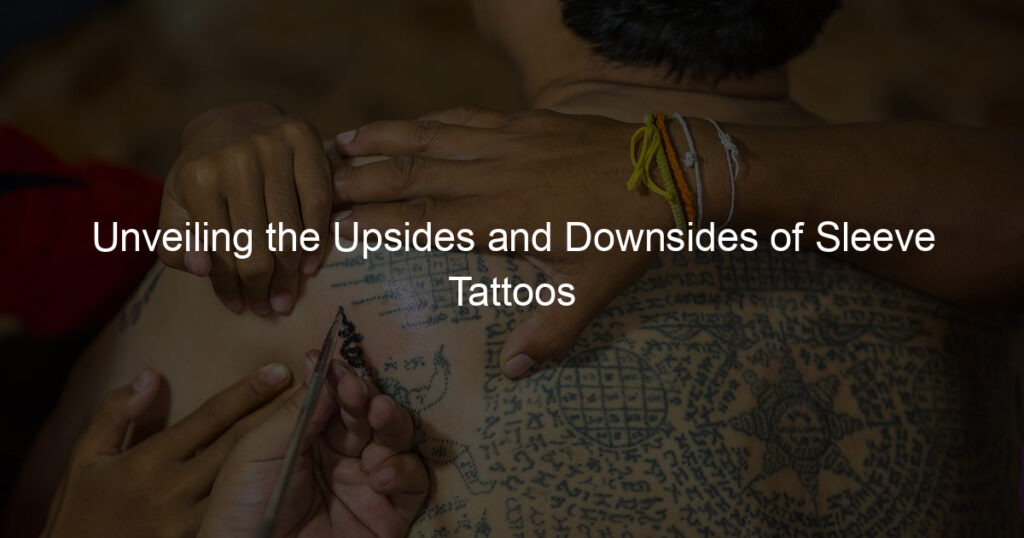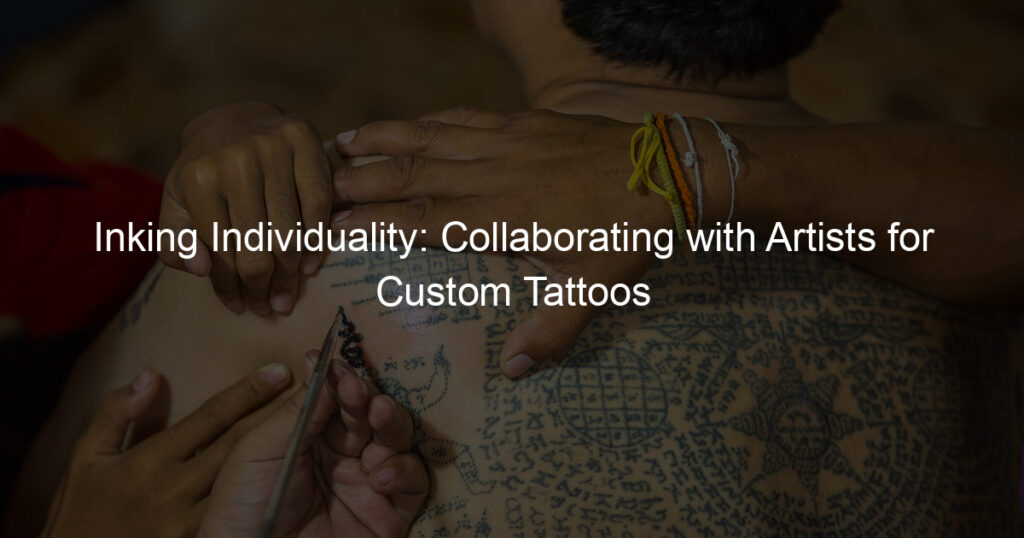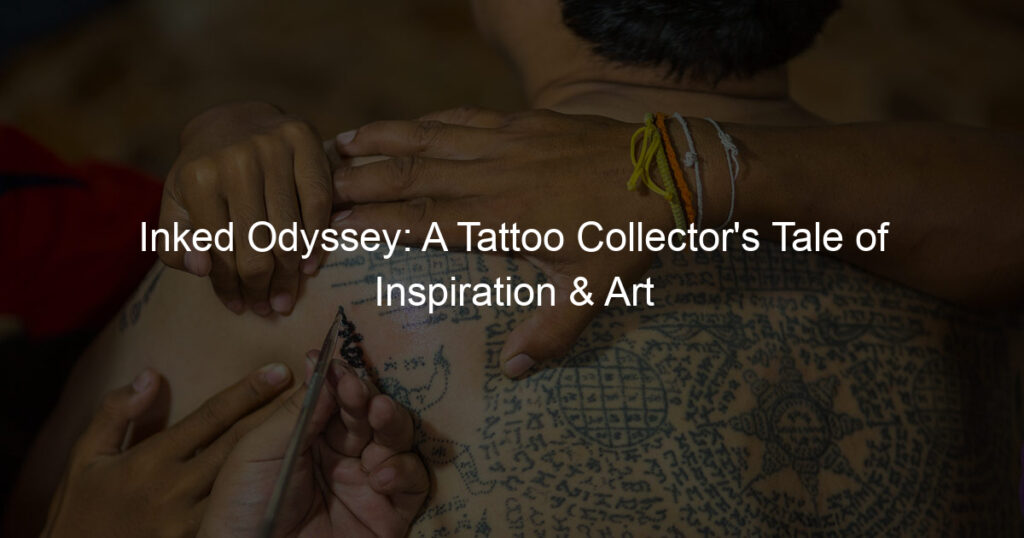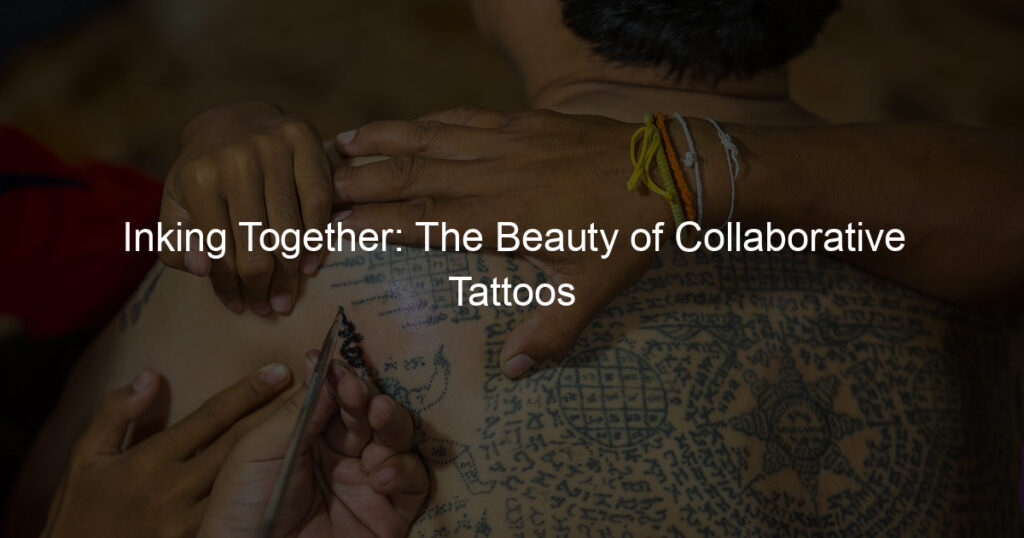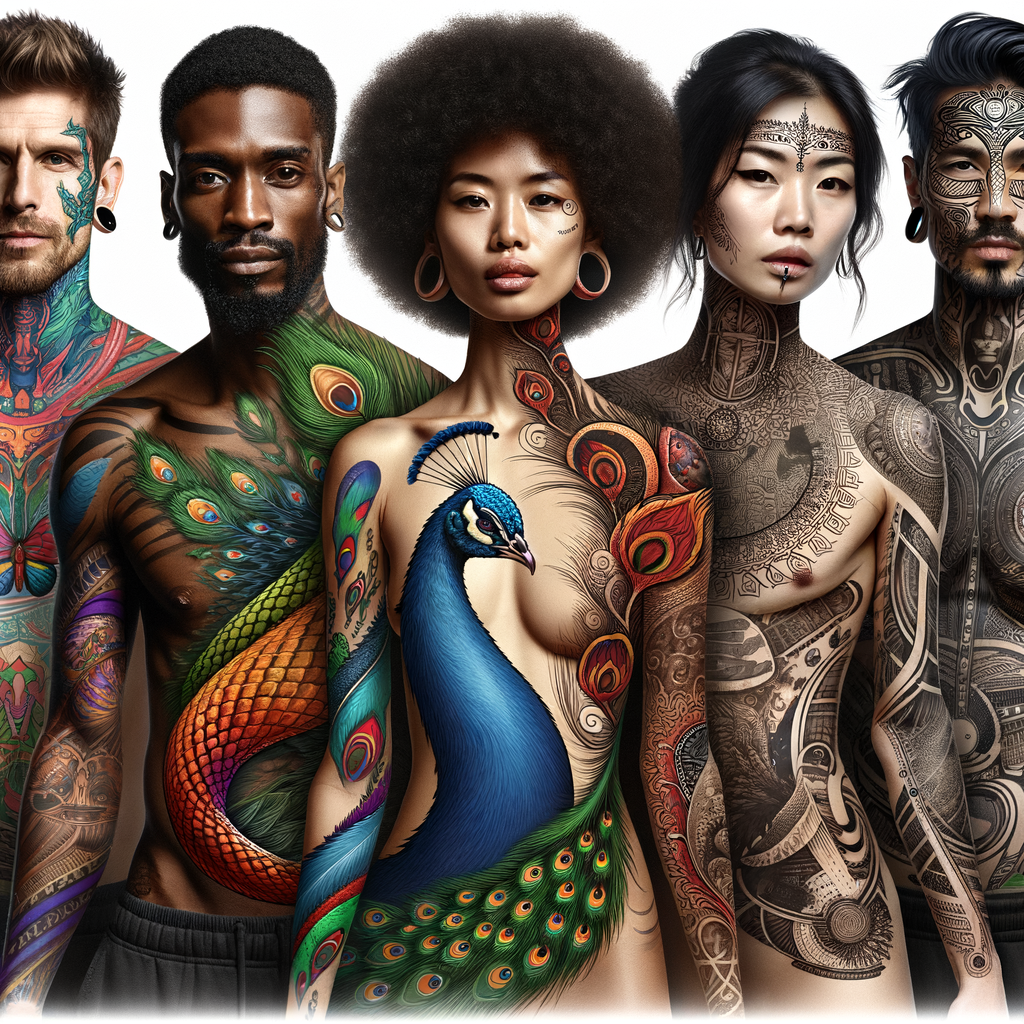
Introduction to Tattoo Artistry
Tattoos have been a part of human culture for centuries, serving as a form of self-expression, identity, and individuality. This article will delve into the fascinating world of tattoo artistry, exploring its history, evolution, and significance in modern society.
Tattooing is more than just applying ink to skin. It is a form of art that requires skill, creativity, and a deep understanding of symbolism. Tattoo artists use a special machine to inject ink into the second layer of skin, creating a permanent design. This process can take hours or even days, depending on the complexity of the design.
There are different styles of tattooing, including traditional, realism, watercolor, and tribal, each with its unique techniques and aesthetics. The choice of style often reflects the wearer’s personality, beliefs, or experiences.
-
Historical Context of Tattoos
Tattoos have a rich history dating back thousands of years. The oldest known tattooed human skin to date is found on the body of Ötzi the Iceman, who lived around 5,300 years ago. Tattoos were used for various purposes in different cultures, such as marking social status, commemorating victories, or as a form of punishment.
In the 18th century, tattoos became popular among sailors as a way of documenting their travels. The modern tattoo machine was invented in the late 19th century, paving the way for the rise of tattoo artistry as we know it today.
-
Modern Evolution of Tattoo Culture
Over the past few decades, tattoo culture has evolved significantly. Once associated with sailors, bikers, and outlaws, tattoos are now embraced by people from all walks of life. According to a 2020 survey, nearly 30% of Americans have at least one tattoo.
Today, tattoos are seen as a form of self-expression and individuality. They can tell a story, commemorate a loved one, or represent a personal belief or value. The rise of social media has also played a role in the popularity of tattoos, with artists showcasing their work and individuals sharing their tattoo stories online.
Self-Expression Through Tattoos
Tattoos are more than just ink on skin. They are a form of self-expression, a way for individuals to tell their stories, share their beliefs, or commemorate significant events in their lives. Let’s delve into the fascinating world of tattoos as personal symbols.
Tattoos as Personal Symbols
Each tattoo carries a unique meaning that is deeply personal to the individual who wears it. Let’s explore the symbolism behind common tattoos and learn about the personal stories behind some unique tattoos.
-
- Interpreting the symbolism behind common tattoos
Many common tattoos have universally recognized meanings. For instance, a rose often symbolizes love or beauty, while a butterfly can represent transformation or freedom. However, the meaning of a tattoo can also be subjective, depending on the individual’s personal experiences and beliefs. For example, a person might choose a lion tattoo to symbolize their courage or strength.
-
- Case study: Personal stories behind unique tattoos
Let’s look at a couple of examples to understand the personal stories behind unique tattoos.
| Name | Tattoo | Story Behind the Tattoo |
|---|---|---|
| John | A compass | John got a compass tattoo after he successfully navigated a difficult period in his life. The compass represents his ability to find his way, no matter how tough the circumstances. |
| Sarah | A cherry blossom tree | Sarah’s cherry blossom tree tattoo is a tribute to her Japanese heritage. It also symbolizes the beauty and fragility of life, reminding her to appreciate every moment. |
As we can see, tattoos can serve as powerful personal symbols, allowing individuals to express their identities and experiences in a unique and artistic way.
Body Art and Identity
Body art, specifically tattoos, can be a powerful way to express one’s identity. They can tell stories, symbolize personal beliefs, or represent significant life events. Let’s delve into how tattoos contribute to personal identity and explore the link between tattoos and personality.
-
- How Tattoos Contribute to Personal Identity
Tattoos are more than just ink on skin. They are a form of self-expression that can reflect one’s identity. A tattoo can be a personal symbol, a representation of a life event, or a tribute to a loved one. It can also be a way to showcase one’s beliefs, values, or interests.
For example, a person might get a tattoo of a musical note to express their passion for music. Or, someone might get a tattoo of a butterfly to symbolize their transformation and personal growth. In these ways, tattoos can be a visual representation of one’s identity.
-
- Exploring the Link Between Tattoos and Personality
Research suggests that there is a link between tattoos and personality traits. For instance, a study published in the Journal of Personality and Individual Differences found that people with tattoos tend to be more extroverted and open to new experiences.
However, it’s important to note that not everyone with a tattoo will have the same personality traits. Tattoos are as diverse as the people who wear them. They can reflect a range of personalities, from the rebellious to the artistic, the sentimental to the adventurous. The key is that the tattoo has a personal meaning to the individual, making it a unique expression of their personality.
In conclusion, tattoos can be a powerful form of self-expression and a unique way to showcase one’s identity and personality. They are more than just body art; they are a reflection of the individual who wears them.
Tattoo Identity and Individuality
In the world of body art, tattoos are more than just ink on skin. They are a powerful medium for self-expression and individuality. Let’s delve into how tattoos allow for personal expression and the key takeaways from this.
Personal Expression with Tattoos
Every tattoo tells a story, a story that is as unique as the individual who wears it. Let’s explore how tattoos allow for unique self-expression and the power they hold.
-
- How tattoos allow for unique self-expression
Tattoos are a form of art that individuals use to express their thoughts, beliefs, experiences, and emotions. They can represent personal triumphs, tributes to loved ones, or even a person’s favorite quote or symbol. The possibilities are endless, making each tattoo a unique piece of self-expression.
-
- Key takeaways: The power of personal expression through tattoos
When it comes to personal expression, tattoos hold immense power. They allow individuals to communicate their identity and individuality in a way that words often cannot. They are a visual representation of a person’s inner self, their passions, and their life experiences. This makes tattoos a powerful tool for personal expression and individuality.
In conclusion, tattoos are more than just body art. They are a form of self-expression that allows individuals to showcase their identity and individuality in a unique and powerful way. Whether it’s a tribute to a loved one, a symbol of a personal triumph, or a representation of a belief or passion, every tattoo tells a unique story.
Tattoos and Individuality
One of the most fascinating aspects of tattoo artistry is its ability to highlight individuality. Tattoos are more than just ink on skin; they are a reflection of one’s personality, beliefs, and experiences. They allow us to express our unique identities in a way that is visible to the world.
-
- How tattoos highlight individuality
Tattoos are a form of self-expression that can be as unique as the individual wearing them. They can tell a story, symbolize a personal journey, or represent a belief or value that is important to the wearer. The design, placement, and even the color of a tattoo can all contribute to its meaning and the message it conveys about the individual.
For example, a tattoo of a butterfly might symbolize transformation or change for one person, while for another, it could represent freedom or beauty. The same tattoo can have different meanings for different people, highlighting the individuality of each wearer.
-
- Example: Tattoos as a form of rebellion against conformity
Throughout history, tattoos have often been seen as a form of rebellion against societal norms and conformity. In many cultures, tattoos were used to mark individuals as outsiders or rebels. Today, while tattoos have become more mainstream, they still carry a hint of rebellion and can be a powerful way for individuals to assert their individuality and non-conformity.
Consider the example of a young woman who chooses to get a tattoo in a visible place, like her forearm or neck. This act could be seen as a rebellion against societal expectations of what is considered ‘appropriate’ or ‘professional’. It’s a statement that she is not afraid to be different and express her individuality.
In conclusion, tattoos are a powerful tool for highlighting individuality. Whether they are used to tell a personal story, symbolize a belief, or act as a form of rebellion, they allow individuals to express their unique identities in a visible and lasting way.
Understanding the Meaning Behind Tattoos
In our exploration of tattoos, it’s essential to delve into the rich and diverse world of tattoo culture. This culture varies significantly across the globe, reflecting the unique traditions, beliefs, and values of different societies.
Tattoo Culture
Let’s take a closer look at the fascinating world of tattoo culture.
- Exploring the diverse world of tattoo culture
Tattoo culture is as diverse as the people who embrace it. From the intricate tribal tattoos of the Polynesian islands to the bold, colorful designs popular in Western societies, each style speaks volumes about the culture it originates from. Tattoos can signify various things, including status, bravery, beauty, or spiritual beliefs. They are more than just body art; they are a form of self-expression and identity.
- How tattoo culture varies across the globe
Across the globe, tattoo culture takes on different forms and meanings. In Japan, for instance, tattoos have long been associated with the Yakuza, the country’s notorious organized crime syndicates. However, in recent years, this perception has been changing, and tattoos are becoming more accepted as a form of personal expression.
In contrast, in places like New Zealand, tattoos, or “Ta Moko,” are deeply rooted in Maori culture and tradition. These tattoos are unique to each individual, telling the story of their ancestry, status, and achievements.
Meanwhile, in Western societies, tattoos have evolved from being a mark of rebellion to a mainstream form of self-expression. Today, tattoos are seen as a way to commemorate personal milestones, honor loved ones, or simply as a form of art.
As we can see, the meaning and significance of tattoos can vary greatly from one culture to another. However, one thing remains constant: tattoos are a powerful way for individuals to express their identity and tell their unique stories.
Decoding Tattoo Meanings
When it comes to tattoos, each design holds a unique meaning. It’s not just about the aesthetics; it’s about the story and the symbolism behind each piece of art. Let’s delve into the world of tattoo meanings.
-
Understanding the Meaning Behind Popular Tattoo Designs
Many popular tattoo designs carry deep meanings. For instance, a rose tattoo often symbolizes love, beauty, and balance, while a dragon tattoo can represent strength, wisdom, and freedom. Let’s explore a few more:
Tattoo Design Meaning Butterfly Symbolizes transformation, change, and freedom. Anchor Represents stability, strength, and hope. Skull Often associated with death, but can also symbolize life, rebirth, or overcoming a tough time. Remember, these are just general interpretations. The true meaning of a tattoo is often personal to the wearer.
-
Case Study: The Personal Stories Behind Unique Tattoo Designs
Every tattoo has a story. Here are a couple of examples of unique tattoos and the personal meanings behind them:
- Story 1: A young woman has a small, colorful bird tattooed on her wrist. For her, this bird represents her grandmother who loved bird-watching. The tattoo is a tribute to her grandmother’s memory and their shared love of birds.
- Story 2: A man has a tattoo of a compass on his forearm. He got it after he quit his job and traveled the world for a year. The compass represents his adventurous spirit and the journey that changed his life.
These stories illustrate how tattoos can be deeply personal and meaningful. They are more than just body art; they are a way to express one’s identity, experiences, and values.
Decoding tattoo meanings can be a fascinating journey. Whether it’s a popular design or a unique piece, each tattoo tells a story. And that story is as unique as the person wearing it.
Conclusion: The Power of Tattoos as Unique Expressions of Identity
As we reach the end of our journey exploring the world of tattoos, we can confidently say that tattoos are more than just ink on skin. They are a powerful tool for self-expression and identity.
-
- Recap of the importance of tattoos in self-expression and identity
Tattoos have been used throughout history as a way to express one’s self and to establish a unique identity. They tell stories, convey emotions, and symbolize personal beliefs. They allow us to wear our hearts on our sleeves, quite literally. We’ve seen how tattoos can represent a person’s journey, their triumphs and struggles, and their dreams and aspirations.
-
- Final thoughts on the personal power of tattoo artistry
The artistry of tattoos is not just about creating beautiful designs. It’s about transforming a person’s body into a canvas that tells their unique story. Tattoo artists have the power to bring a person’s inner world to life, creating a visible manifestation of their identity. This power is not to be taken lightly. It’s a responsibility that requires skill, creativity, and a deep understanding of the human spirit.
In conclusion, tattoos are a powerful form of self-expression and identity. They allow us to tell our stories, express our emotions, and symbolize our beliefs in a way that is visible to the world. They are a testament to our individuality, a celebration of our uniqueness, and a powerful reminder of our personal journey. So, the next time you see a tattoo, remember that you’re not just looking at a piece of art. You’re looking at a piece of someone’s soul.









